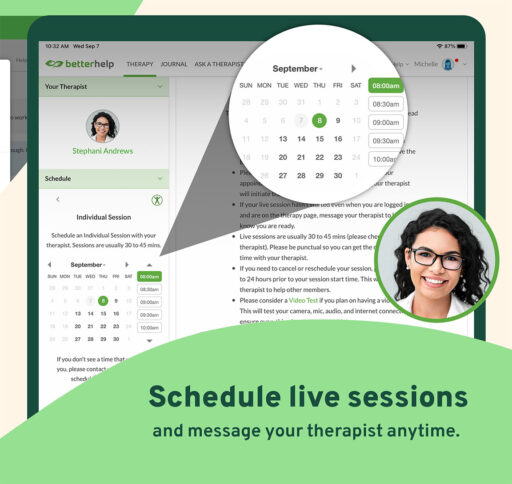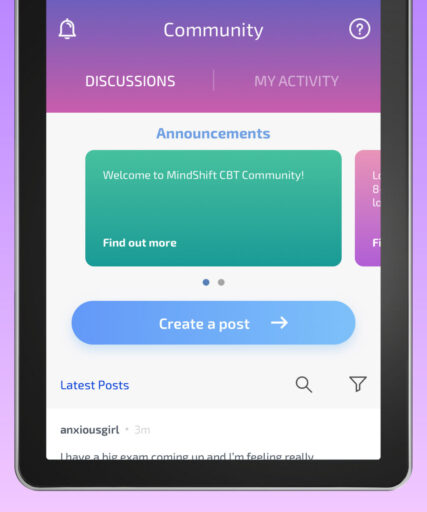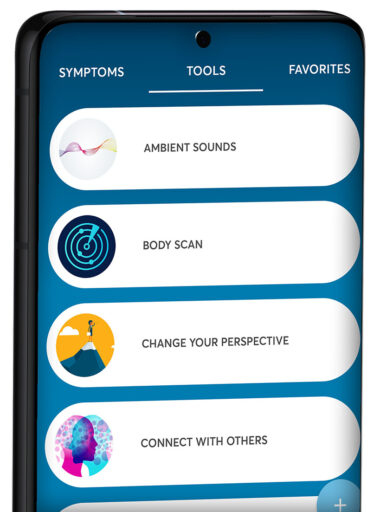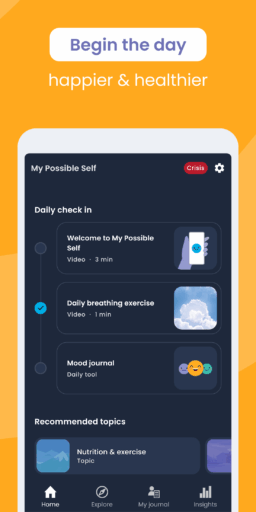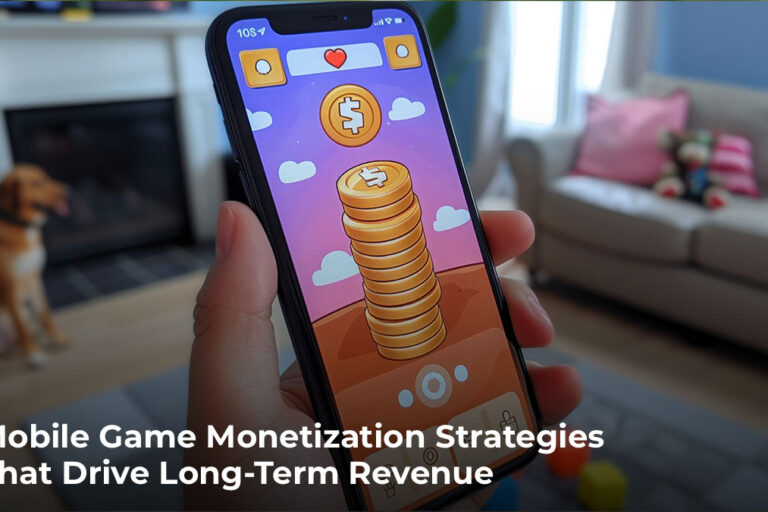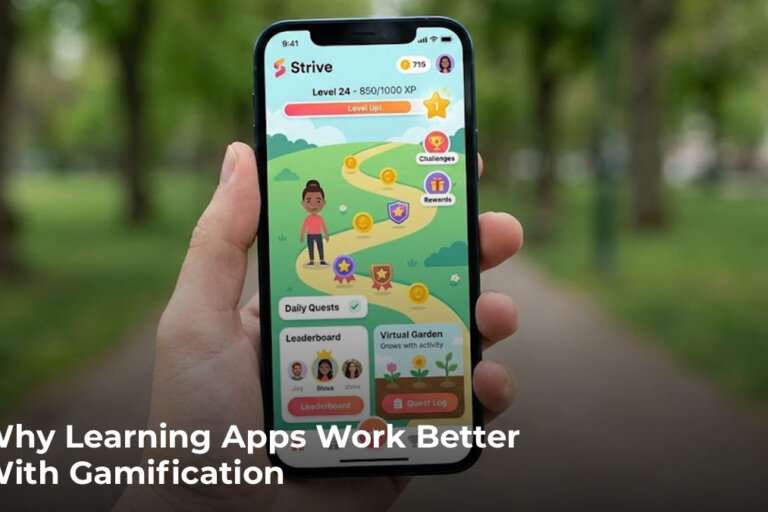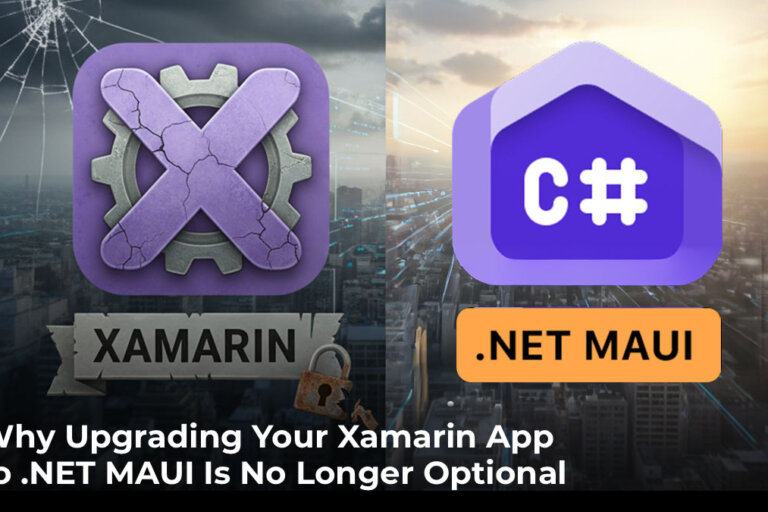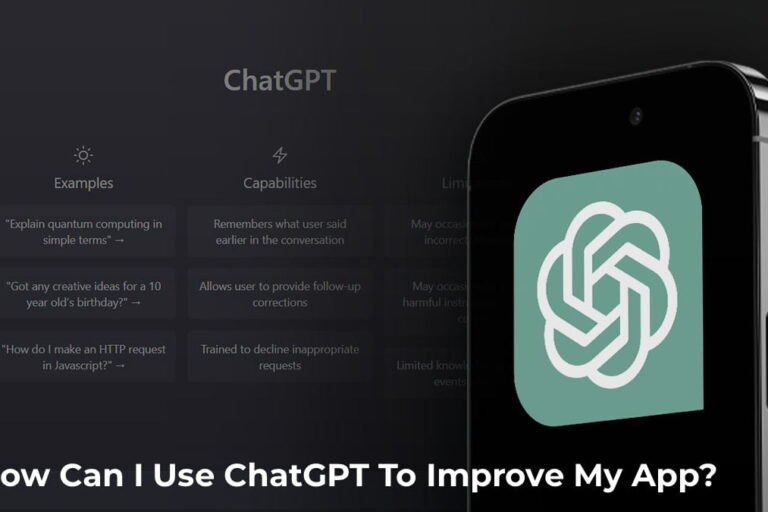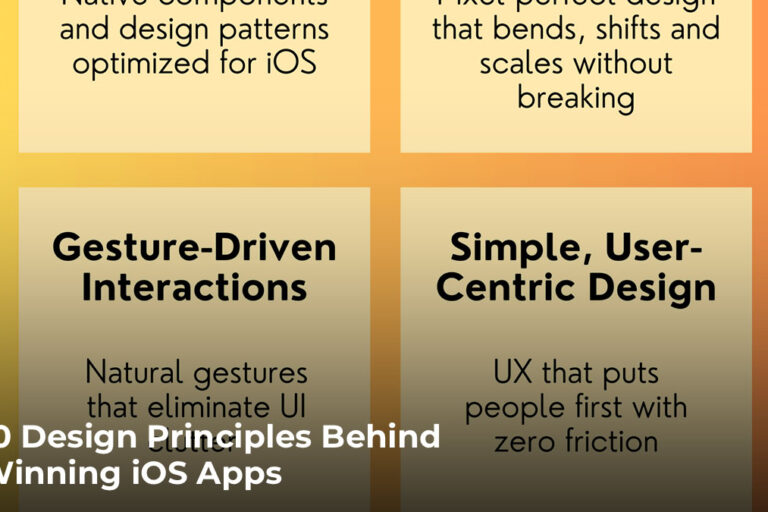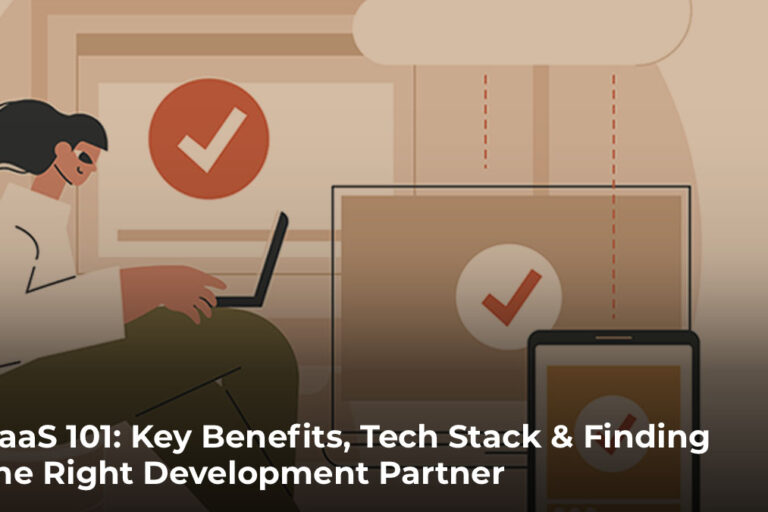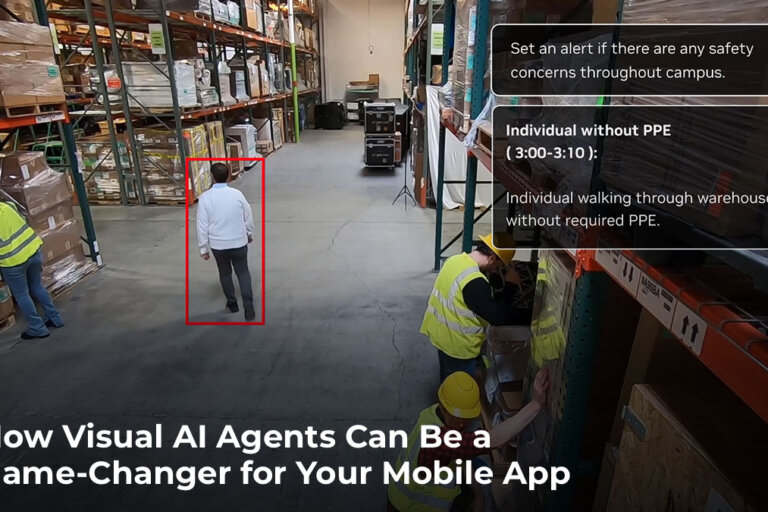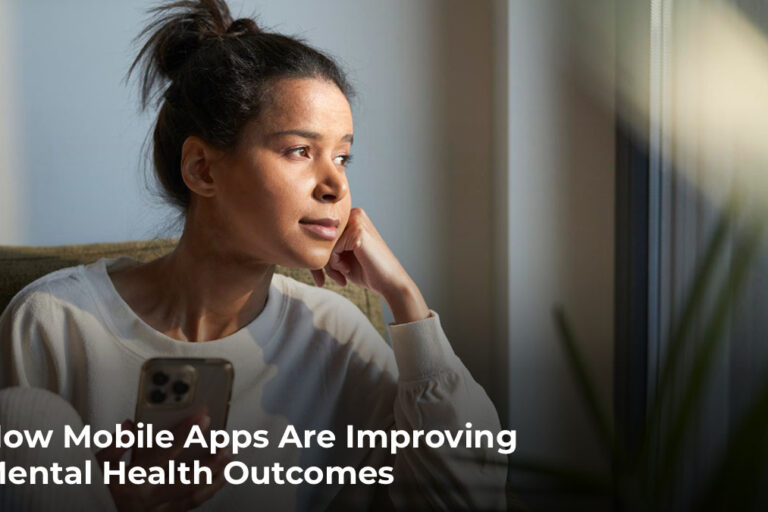How Mobile Apps Are Improving Mental Health Outcomes
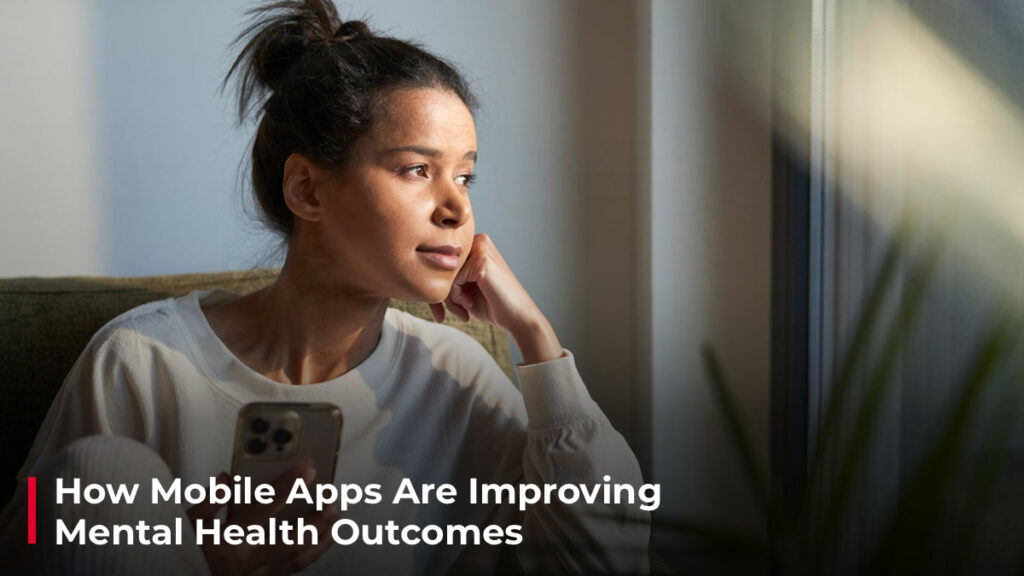
We live in a digitally driven world where nearly every health-related challenge has a solution just a tap away, and mental health is no exception. With smartphones practically in every hand and global connectivity at an all-time high, we’re navigating a new era of mental healthcare — one that is more personalized, mobile and cost-effective.
As more people turn to digital wellness, custom mental health apps are becoming an essential part of modern healthcare. Designed with user-friendly features and intuitive interfaces, these apps are breaking down long-standing barriers and making mental health support more accessible to people everywhere.
In this blog, we’ll explore how custom mental health apps make a real difference by improving mental health outcomes and helping people lead healthier lives.
What is a Mobile Mental Health Application?

Mental health applications (MH apps) are mobile apps designed to help you take control of your mental well-being. From managing anxiety, depression, bipolar disorder, personality disorders, and schizophrenia to coping with everyday stressors, these apps provide flexible support for a wide spectrum of mental health needs. With expert guidance available remotely or through self-directed tools, these apps aim to make mental health care more accessible, proactive, and personalized.
Most of the modern mental health apps come packed with features like mood tracking, daily check-ins, self-help programs, early symptom screening, cognitive behavioral tools (CBT), motivational resources, and even virtual access to licensed therapists. Some go a step further by connecting you with peer communities so you know you’re not alone. And if things get overwhelming? Many apps include emergency contact features or instant coping strategies to help get you through.
By tapping into patient-generated health data, mental health apps offer personalized insights, timely alerts, and targeted interventions that help users take control of their mental well-being. They not only boost mental health awareness and support everyday self-care but also help bridge critical gaps in traditional healthcare systems, especially for those who may have limited access to in-person services or need immediate support.
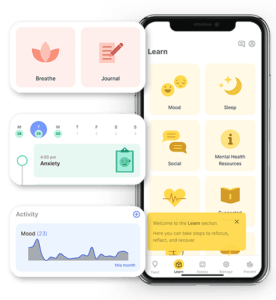
For example, MindLAMP stands out as a prominent mental health app for its role in both managing patient care and supporting neuropsychiatric studies. It’s particularly effective in monitoring conditions such as schizophrenia, Alzheimer’s, and chronic depression. Built around the LAMP framework — Learn, Assess, Manage, and Prevent — the app allows both users and researchers to gather symptom data, spot patterns, and even figure out how the environment might be affecting someone’s mental health.
What makes mindLAMP really stand out is how flexible, scalable and easy to use it is. Plus, anyone can use it, which makes it super valuable for people who want a deeper, more personalized look at their mental well-being.
What’s Making Mental Health Apps So Popular Now?
According to Fortune Business Insights, the mental health app industry is on a rapid upward trend, with projections showing it could grow from $7.4 billion in 2025 to almost $24 billion by 2032, reflecting strong and steady demand. This growth can be attributed to a variety of factors, including increased connectivity, a big shift towards digital everything, more open conversations about mental health, the rise of remote care, and just the overall convenience of virtual treatments in homecare settings.
Mental health apps are definitely having a moment. But this shift didn’t happen overnight. Their rise really kicked off during the COVID-19 pandemic, when the whole world went into lockdown, and suddenly, people were dealing with all kinds of emotional chaos — loss, fear, isolation, uncertainty, you name it. Therapy offices were closed, clinics were overwhelmed, and honestly, people were just trying to survive mentally.
That’s when smartphones proved they were more than just tools for calling, texting, or getting through work-from-home life. They became discreet and powerful gateways to mental health support across regions and languages, and for many, a much-needed lifeline to emotional well-being.
Today, while many aspects of life have returned to “normal,” systemic challenges in accessing traditional mental healthcare remain. Patients still face long wait times for appointments, limited clinical hours, and barriers related to cost and accessibility. And all of this is happening while mental health issues are still on the rise.
These stats show how the mental health crisis is powering the rise of mobile apps for mental health:
- One in seven young people (ages 10-19) experiences a mental health disorder each year often due to social pressures, academic stress, and the increasing isolation within nuclear family structures.
- Over 90% of suicide cases are linked to untreated or under-treated mental health conditions like depression, anxiety, substance abuse, and trauma.
- Depression alone affects up to 6% of the global population at some point in their lives, yet most people don’t get the help they need.
These stats speak loud and clear about the growing urgency to address mental health more proactively. As the numbers rise, so does the need for accessible, scalable, and personalized medical care and this is exactly where custom mental health apps are stepping in to make a difference.
Unlike traditional therapy models, digital apps for mental health offer users immediate access to tools and resources. They’re fast, private, and available 24/7. Perhaps most importantly, they allow users to seek help privately — no need for waiting rooms, referrals, explanations, or the fear of judgment. You just open an app, check-in, and get the help you need.
In a world still grappling with how to treat mental health with the urgency it deserves, tech is finally filling the gap. And it’s creating a massive opportunity for healthcare providers to modernize how they support patients. By developing their custom mental health apps, healthcare organizations can meet users where they are, on their phones and deliver care that’s personal and truly patient-centered.
How Mobile Apps are Improving Mental Health Outcomes
With growing adoption and increasing demand for faster, more personalized support, mobile apps for mental health are proving to be powerful supplements to traditional mental health services. They’re actively improving how mental healthcare is accessed, delivered, and experienced.
Timely, On-Demand Support
Most of us have been there. Something feels off. Maybe it’s stress, maybe it’s anxiety. Before we even think about visiting a professional, we’re already reaching for our phones and searching for answers. That instinct to turn to our devices first is exactly what’s fueling the rise of mental health apps.
Unlike traditional care models that often involve long wait times and scheduling hassles, digital mental health apps offer support right when it’s needed. Whether it’s breathing exercises, mood tracking, guided meditations, AI-based symptom screening or instant messaging with licensed therapists, apps like SMI Adviser make support just a tap away.
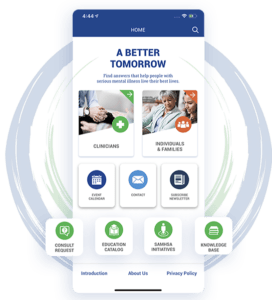
This kind of timely mobile-based psychotherapy intervention can deliver serious value. It can help de-escalate symptoms, reduce stress levels, and create a sense of control, all of which are critical in improving long-term mental health outcomes. Simply put, if you’ve got the right mental health app on your phone, half the battle is already won.
Reducing Stigma, Increasing Access
While societal attitudes have shifted, the stigma around mental health still runs deep. Many people hesitate to reach out for help simply because they’re afraid of being judged, labeled, or misunderstood. This hesitation can prevent individuals from getting the care they desperately need, even when they’re in serious distress.
Mental health apps are helping to break down that barrier. These digital tools offer a private and judgment-free space where users can explore their emotions, track their mental state, and access support without revealing their identity.
This kind of discreet access through app-based interventions can set the stage for people to open up without feeling exposed. They take the pressure off and help individuals take that first step toward feeling better. And once they’re ready, it can eventually lead to seeking in-person professional support.
By offering a safe starting point, mental health apps like Wysa and Youper AI help normalize the act of seeking help. That, in turn, leads to earlier intervention, allowing symptoms to be addressed sooner, and improving long-term outcomes for users who might otherwise suffer in silence.
Sustaining Mental Wellness Post-Recovery
Recovery doesn’t stop when the crisis ends. In fact, the period after formal treatment is often the most fragile. Without proper aftercare, individuals often find themselves alone, unsupported, and vulnerable to relapse as they navigate familiar environments that once contributed to their struggles.
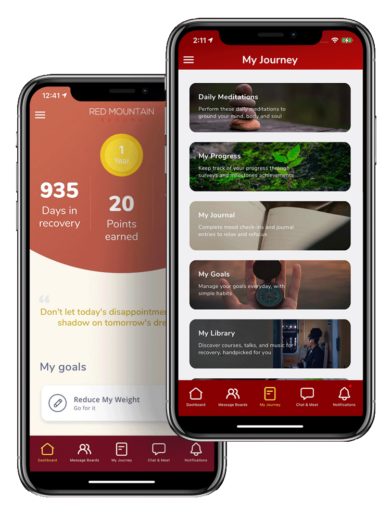
That’s where tech-enabled mental health support apps can make a real impact. MH apps like HereNow developed by Zco extend support beyond the clinical setting, helping individuals maintain momentum in their recovery and stay connected to their goals. The app offers a customizable toolkit featuring daily journaling, guided meditations, self-assessments, fitness-based rewards, and peer-support forums that help users track their mental health, build habits, and stay motivated.
For those in substance use recovery, HereNow also incorporates clinical tracking tools like the Brief Addiction Monitor (BAM and BAM-R), allowing for real-time monitoring and adjustments to treatment plans. This kind of proactive tracking leads to more responsive, personalized care, and better outcomes over time.
Additionally, HereNow is flexible enough to adapt to the needs of different user groups: veterans transitioning to civilian life, students facing academic pressures, employees navigating workplace stress, and public health teams managing broader community wellness. Employers, in particular, can use aggregated data from the app to better understand workforce well-being and implement smarter, more targeted wellness initiatives.
Cost Effective Support
Traditional appointments for psychological or mental health support can be expensive. For many, this financial strain becomes a major barrier to getting timely help. And when support is delayed due to cost, mental health issues can worsen, becoming harder (and more expensive) to treat later.
That’s where digital mental health apps help break the cycle by offering affordable (and sometimes free) tech-enabled interventions from the comfort of your home. From AI chatbots that guide you through cognitive behavioral exercises to anonymous journaling and online therapy sessions, tools like Wysa and MindShift provide meaningful help without the high price tag.
By easing the financial strain during already overwhelming times, mental health apps empower individuals to seek help sooner, leading to faster recovery.
Self Monitoring
Mental health challenges don’t appear overnight. More often, they build slowly through disrupted sleep, irritability, low mood, or an ongoing sense that something isn’t right. Spotting these early shifts can be the key to staying well, and that’s where self-monitoring becomes so valuable.
With today’s digital mental health tools, keeping track of your emotional well-being is both simple and accessible. Apps like Daylio and Moodprism allow users to log their moods, track sleep patterns, monitor alcohol intake, and reflect on daily habits, all from a single platform. If you’re feeling off, you can ask the app why your mood might be low or what steps to take to feel better.
These self-monitoring tools are especially effective for managing mild to moderate mental health concerns, like anxiety or depression. By identifying emotional triggers early, users can apply coping strategies, build better habits, and, when necessary, seek professional support before symptoms intensify.
Therefore, through self-monitoring mental health and wellness apps people can become more aware of their mental state, stay consistent with healthy routines and take more control over their emotional well-being.
Supplementing Treatment Within the Healthcare System
With technology, the delivery of healthcare services has become far more efficient and streamlined than it was just a few years ago. Today, clinicians routinely recommend digital apps and online programs to complement traditional therapy, especially when demand outpaces supply.
Rather than replacing therapy, mobile mental wellness apps are now used as supplementary aids that reinforce patients’ coping skills through homework-style assignments. Patients work through exercises on their phone or computer, while a clinician (or trained coach) monitors progress and adjusts treatment as needed.
Apps like PTSD Coach are built specifically to be used alongside professional care. It offers trauma education, self-assessment quizzes, and on-demand tools to manage stress and anxiety. Platforms like NOCD go even further, letting members message their therapist directly and receive timely support for OCD when needed. Some tools can even send alerts to clinicians, helping them quickly identify who may need extra attention and who’s managing well on their own.
These tools have helped therapists reach more people within a limited capacity without compromising care quality. On top of that, digital apps help improve mental health literacy and encourage more consistent engagement with care services. For patients, having access to support between sessions adds a layer of reassurance and reduces uncertainty.
Real-Time Symptom Monitoring for Periodic Clinical Intervention
Mental health apps now play a powerful role in helping individuals track their symptoms in real-time. With just a tap or swipe, you can log your mood, note how well you slept, track your energy levels, identify emotional triggers, or record how you felt after taking medication.
When you stick with it, all those daily check-ins start to form a clear picture of your mental health patterns. The app graphs your entries and makes it easy to spot, say, recurring low points or gradual improvements. This stream of data can be shared with clinicians to track progress and receive necessary care.
Some smartphone-based mental health apps, like MyPossibleSelf and CareClinic, give you friendly nudges to build better habits. You might get a reminder to log your mood or a virtual little high-five when you get a full eight hours of sleep. These apps can also raise red flags automatically, alerting clinicians if things start to look concerning, say if you haven’t been able to sleep for several days in a row.
This kind of real-time tracking is a big upgrade from the usual “How have you been feeling lately?” question at a therapy session. Instead of trying to remember everything, your clinician gets a clear, up-to-date view of your mental health. Some mobile-based mental health apps even let them track your progress in real-time through secure dashboards, so they can respond faster and make more informed decisions.
In short, digital check-ins help bridge the gap between appointments. They keep your clinician in the loop, reduce the risk of things slipping through the cracks, and make ongoing care more responsive and personalized.
In Conclusion
Mental health apps are becoming a key part of how people manage their mental well-being. From real-time symptom monitoring to supporting therapy sessions and post-recovery care, these digital tools are helping users stay more connected, more aware, and more in control of their mental health. With rising demand for accessible, scalable solutions, their role in care delivery is only growing.
That said, not all apps are created equal. Privacy, underlying security concerns, clinical accuracy, and most importantly users’ trust are critical aspects that make a mental health app worth downloadable. And that’s where thoughtful, expert-led development makes all the difference.
At Zco, we bring deep expertise in building secure, user-friendly mental health apps that are grounded in clinical best practices. Whether you’re looking to support therapy, enable self-guided care, or enhance clinical monitoring, we’re here to help you create secure, scalable, and impactful mental health solutions.

